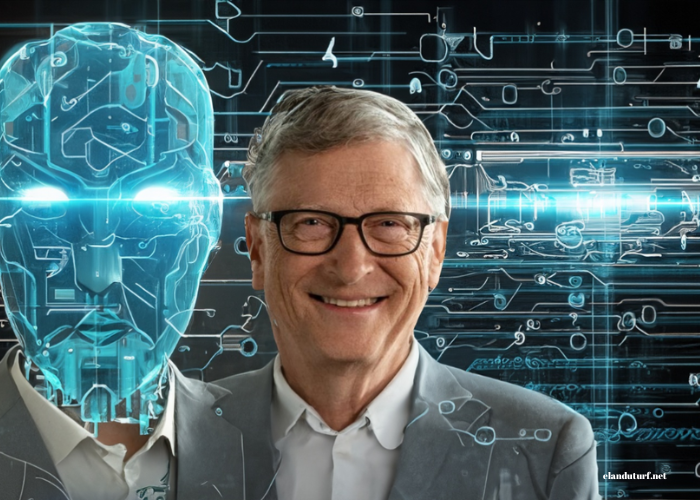Artificial Intelligence (AI) has transcended its role as a buzzword and has firmly established itself as a pivotal element of modern technology. With its roots tracing back to the mid-20th century, AI has evolved through several phases, adapting to technological advancements and societal needs. As we stand on the cusp of a new era in AI development, it is essential to explore the trends that are shaping its future, the challenges it faces, and the implications for various sectors.
The Evolution of Artificial Intelligence
Before delving into future trends, it’s essential to understand how AI has evolved. The term “Artificial Intelligence” was coined in 1956 at a conference at Dartmouth College, where early pioneers envisioned machines that could mimic human intelligence. However, the field experienced several periods of stagnation, often referred to as “AI winters,” due to unmet expectations.
In recent years, advancements in computational power, data availability, and algorithmic improvements have propelled AI into a new phase characterized by breakthroughs in machine learning (ML) and deep learning. These technologies have enabled AI systems to learn from vast amounts of data, improving their accuracy and effectiveness in various applications.
Current State of AI Technology
As of now, AI is omnipresent, impacting multiple sectors, including healthcare, finance, education, and transportation. Key developments include:
- Natural Language Processing (NLP): NLP enables machines to understand and respond to human language. Applications range from virtual assistants like Siri and Alexa to chatbots that enhance customer service experiences.
- Computer Vision: This technology allows machines to interpret and make decisions based on visual data. It is instrumental in areas such as autonomous vehicles, facial recognition, and medical imaging.
- Robotics: AI-driven robotics is transforming industries by automating repetitive tasks, improving efficiency, and enhancing safety in hazardous environments.
- Predictive Analytics: Businesses use AI to analyze historical data and predict future trends, aiding in decision-making and strategy formulation.
- Personalization: AI algorithms enable businesses to provide tailored experiences, from product recommendations to targeted advertising, enhancing customer satisfaction and engagement.
Key Trends Shaping the Future of AI
The future of AI is poised for remarkable advancements that will reshape various industries. Here are some of the key trends to watch:
Enhanced Human-Machine Collaboration
As AI systems become more sophisticated, the collaboration between humans and machines will deepen. Rather than replacing jobs, AI will augment human capabilities, enabling workers to focus on higher-level tasks that require creativity and emotional intelligence. For example, in healthcare, AI can analyze medical data and assist doctors in diagnosing conditions, but the final decision will remain with the healthcare professional.
AI Ethics and Governance
As AI technology continues to advance, ethical considerations surrounding its use will come to the forefront. Issues such as bias in algorithms, data privacy, and accountability will necessitate the establishment of ethical guidelines and regulatory frameworks. Organizations will need to prioritize transparency and fairness in their AI systems to build trust with users.
AI in Edge Computing
With the rise of the Internet of Things (IoT), edge computing is gaining prominence as a way to process data closer to its source. AI will play a critical role in edge computing, enabling real-time data analysis and decision-making. This trend will be particularly beneficial in applications such as autonomous vehicles, smart cities, and industrial automation, where latency is a critical factor.
Democratization of AI
The future of AI will see a democratization of technology, making it accessible to a broader audience. Open-source AI tools, user-friendly interfaces, and cloud-based platforms will empower small businesses and individuals to leverage AI without requiring extensive technical expertise. This trend will foster innovation and creativity, allowing diverse voices to contribute to AI development.
Advancements in Explainable AI
As AI systems become more complex, the need for transparency and interpretability will grow. Explainable AI (XAI) aims to make AI decisions understandable to humans, enhancing trust and accountability. This trend is particularly relevant in sectors like finance and healthcare, where understanding the rationale behind AI-driven decisions is crucial.
AI and Sustainability
AI has the potential to contribute significantly to sustainability efforts. By optimizing resource usage, improving supply chain efficiency, and enhancing energy management, AI can help organizations reduce their environmental impact. For instance, AI-driven predictive analytics can help farmers make data-informed decisions about crop management, leading to more sustainable agricultural practices.
Integration of AI and Quantum Computing
Quantum computing is set to revolutionize the field of AI by exponentially increasing computational power. This integration will enable the development of more advanced AI algorithms capable of solving complex problems that are currently beyond the reach of classical computers. Fields such as drug discovery, climate modeling, and financial modeling will benefit from this synergy.
AI-Powered Cybersecurity
As cyber threats become more sophisticated, AI will play a crucial role in enhancing cybersecurity measures. AI algorithms can analyze patterns and detect anomalies, enabling organizations to respond to threats in real time. The ability to predict potential security breaches will significantly improve organizational resilience against cyberattacks.
AI in Education
The education sector is witnessing a transformation driven by AI technologies. Personalized learning experiences, powered by AI, can cater to individual student needs and learning styles. Intelligent tutoring systems can provide additional support to students, while administrative tasks can be automated, allowing educators to focus on teaching.
The Rise of AI in Creative Industries
AI is making inroads into creative fields, including art, music, and content creation. Generative AI models can create music, write stories, and even produce visual art, blurring the lines between human and machine creativity. While this trend raises questions about authorship and originality, it also opens new avenues for collaboration between artists and AI.
Challenges Facing the Future of AI
Despite the promising trends, several challenges must be addressed for AI to realize its full potential:
Data Privacy and Security
As AI systems rely heavily on data, concerns regarding data privacy and security will intensify. Organizations must implement robust data protection measures to safeguard user information and comply with regulatory requirements.
Workforce Displacement
The automation of tasks through AI may lead to job displacement in certain sectors. While AI is expected to create new opportunities, there will be a transition period where workers may need to reskill or upskill to remain competitive in the job market.
Ethical Dilemmas
AI systems can perpetuate biases present in training data, leading to discriminatory outcomes. Addressing ethical dilemmas in AI development and deployment will require collaboration among technologists, ethicists, and policymakers.
Technical Limitations
Despite advancements, AI systems still face technical limitations, such as understanding context, common sense reasoning, and emotional intelligence. Continued research and innovation are necessary to overcome these challenges.
Regulation and Governance
The rapid pace of AI development may outstrip the ability of regulatory frameworks to keep up. Policymakers will need to strike a balance between fostering innovation and ensuring responsible AI use.
Conclusion
The future of Artificial Intelligence is poised for remarkable advancements that will reshape industries and society. As we embrace the potential of AI, it is essential to navigate the challenges that accompany this technology responsibly. By prioritizing ethical considerations, fostering collaboration between humans and machines, and democratizing access to AI, we can unlock its full potential while ensuring a positive impact on our world. The journey of AI has just begun, and its evolution promises to unveil innovations that will enhance our lives and drive progress across multiple domains. The coming years will be pivotal in determining how we harness this powerful technology for the benefit of humanity.




